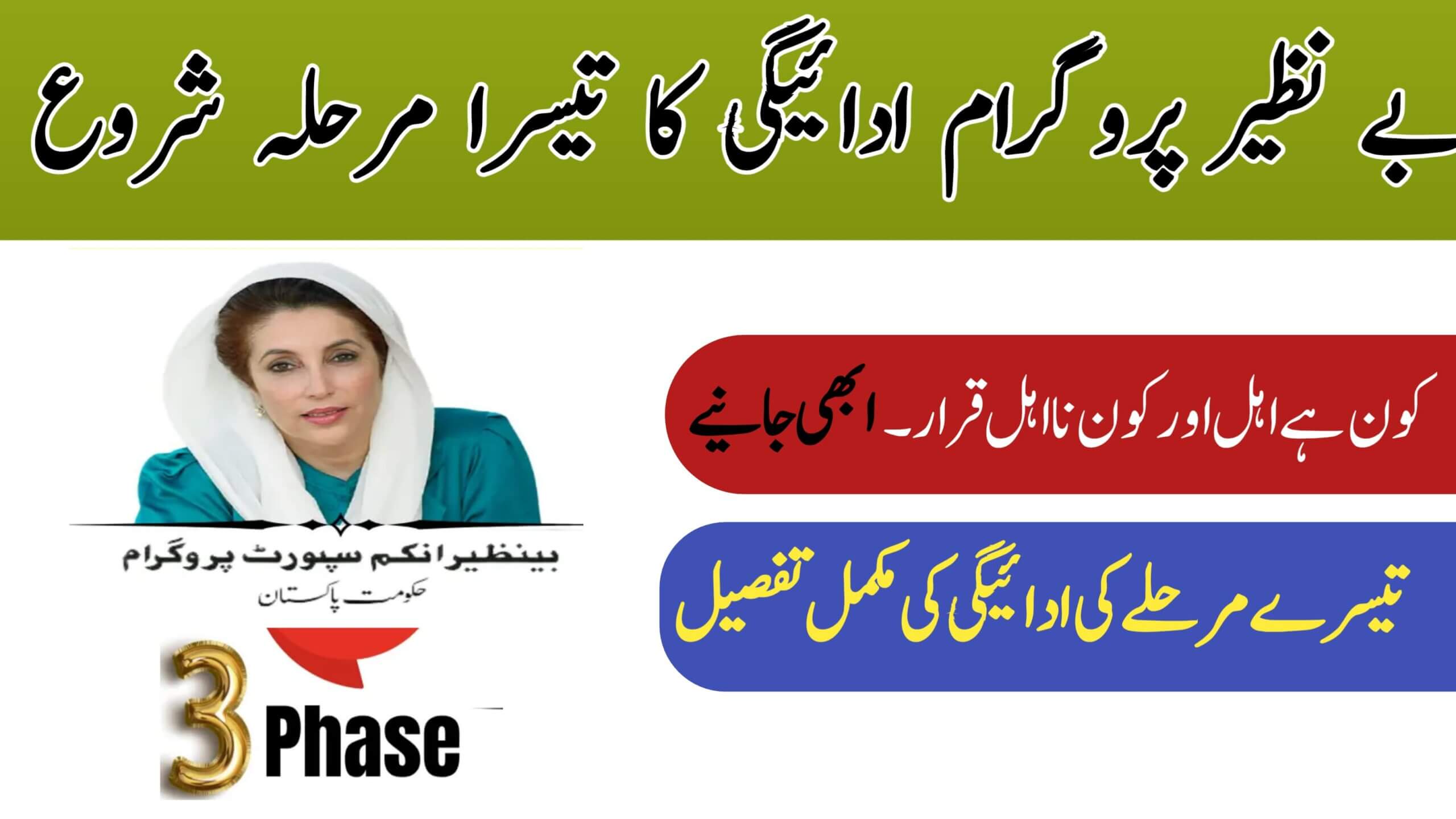The government of Pakistan has taken another significant step toward uplifting its underprivileged population through the Benazir Income Support Program (BISP). As of July 2025, the third phase of quarterly payments has reportedly begun, providing much-needed financial assistance to millions of eligible beneficiaries across the country.
In this article, we will explore all the latest updates regarding this phase, including the payment process, eligibility, new features, and how beneficiaries can receive their funds easily.
What is the BISP Program?
Launched in 2008, the Benazir Income Support Program is Pakistan’s largest social safety net initiative. It aims to reduce poverty and empower women by providing unconditional cash transfers to low-income families, especially those headed by women. Over the years, BISP has expanded its reach and now operates under multiple segments, like
- BISP Kafaalat
- BISP Nashonuma
- Benazir Taleemi Wazaif
- 8171 Online Portal Services
Third Phase of BISP Payments—July 2025
According to unofficial but widely circulated updates, the third payment phase for the 2025 cycle is expected to start on July 3, 2025. Beneficiaries who have already received the first and second quarterly instalments earlier this year can now expect to receive their next instalment of Rs. 10,500 or more, depending on the category.
It’s important to mention that while this date is not yet confirmed on the official BISP website, several local news sources and social media channels have reported this development.
Read Also: Apni Chhat Apna Ghar Scheme CM Punjab Online Apply Now 2025 Latest Update
Payment Distribution Mechanism
To ensure transparency and ease of access, BISP has adopted a retail payment system and biometric verification method. This new mechanism aims to eliminate corrupt practices and ensure that payments go directly to the deserving recipients.
Key Features of the Payment Process:
- Biometric verification is required at payment collection points.
- Payments can be collected from designated retail shops, not just banks.
- The original CNIC must be presented during the transaction.
- Beneficiaries will receive a printed receipt confirming the transaction.
How to Check Eligibility
If you are unsure whether you qualify for this phase of BISP payments, the government has made it easy to verify eligibility through the 8171 SMS service and official BISP web portal.
Here’s how:
- Send your CNIC number via SMS to 8171.
- Wait for a reply confirming your eligibility.
- Alternatively, visit the and check your status online.
Documents Required for Payment
To collect your payment during the third phase, make sure you have the following:
- Original Computerized National Identity Card (CNIC)
- Mobile phone (for OTPs and verification)
- If applicable, payment slip from the previous instalment
Common Issues & How to Resolve Them
1. Biometric Failure
If your fingerprints are not being recognised, you can:
- Visit another biometric-enabled retailer
- Contact your nearest BISP Tehsil Office for assistance
2. Delay in Payment
Payment not showing in the system? Try the following:
- Confirm your eligibility again via 8171
- Check if your CNIC is valid and not blocked
- Call the BISP helpline at 0800-26477
Read Also: Ehsaas Apna Ghar Apni Chat Scheme Online Registration ehsasapnaghar.bok.com.pk
Future Enhancements in BISP
In an effort to further digitise the system and eliminate middlemen, the government is planning to roll out BISP Digital Wallets by the end of 2025. These will allow recipients to receive and store money electronically, improving convenience and safety.
Final Words
The third phase of the Benazir Income Support Program 2025 is a continuation of the government’s commitment to economic justice and poverty alleviation. Through digitised payments, strict verification, and direct cash transfers, BISP ensures that help reaches those who need it the most. If you’re a registered beneficiary, make sure to verify your eligibility and collect your payment on time. For the latest updates, always rely on official government channels and avoid believing in unauthenticated news from unofficial sources.
For more information, click here.

1 thought on “Benazir Income Support Program (BISP) 2025 || Third Phase of Payment Distribution Starts”